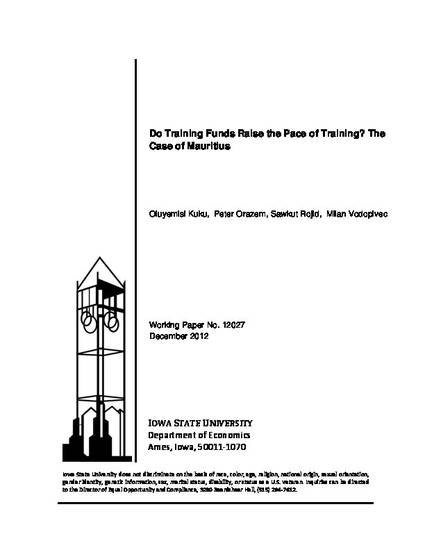
Article
Training funds and the incidence of training: the case of Mauritius
Education Economics
Document Type
Article
Disciplines
Publication Version
Submitted Manuscript
Publication Date
1-1-2016
DOI
10.1080/09645292.2015.1009418
Abstract
Training funds are used to incentivize training in developing countries, but the funds are based on payroll taxes that lower the return to training. In the absence of training funds, larger, high-wage and more capital-intensive firms are the most likely to offer training unless they are liquidity constrained. If firms are not liquidity constrained, the fund could lower training investments. Using an administrative data set on the Mauritius training fund, we find that the firms most likely to train pay more in taxes than they gain in subsidies. The smallest firms receive more benefits than they pay in taxes.
Citation Information
Oluyemisi Kuku, Peter F. Orazem, Sawkut Rojid and Milan Vodopivec. "Training funds and the incidence of training: the case of Mauritius" Education Economics Vol. 24 Iss. 3 (2016) p. 280 - 299 Available at: http://works.bepress.com/peter-orazem/89/

This is a working paper of an article from Education Economics 24 (2016): 280, doi: 10.1080/09645292.2015.1009418.